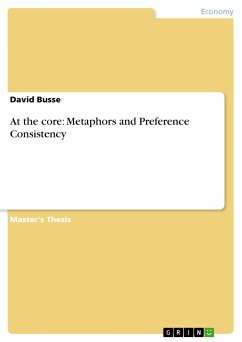Master's Thesis from the year 2011 in the subject Business economics - Offline Marketing and Online Marketing, grade: 1,0, Otto-von-Guericke-University Magdeburg, language: English, abstract: In 2009 the three academics On Amir, Dan Ariely and Leonard Lee published the article "In Search of Homo Economicus" in the Journal of Consumer Research (JCR). After having conducted five experiments the conclusion of this article was that people who put more trust in their feelings show more consistent preferences than people who base their decisions on analytics and deliberation. Supported was that resulting conclusion of the psychological fundamental that emotions are nothing more than efficient programmes, designed by evolution to ensure species preserving reactions on external influences. The author of the present paper tested the aforementioned tenor critically by setting up two experiments using the previous work by Amir, Ariely and Lee as a basis. In the first experiment 131 probands were tested, in a second slightly modified experiment 26 persons participated in the experiment. After several tests of the collected data material the conclusion of Amir, Ariely and Lee cannot be supported. In fact, data of persons who are assumed to be deliberate thinkers showed lower numbers of errors.

